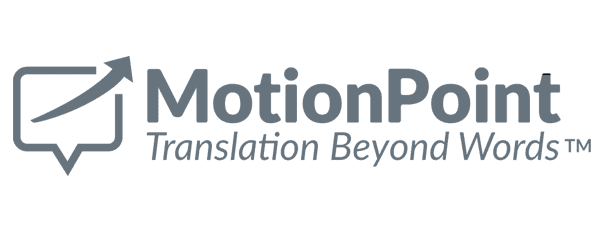




It doesn't take an expert to see that smartphones and tablets are revolutionizing the way we communicate and consume content. And as smartphone users busily tap, poke, tweet, Like, stream, and pin, businesses are scrambling to adapt to these game-changing trends:
Mobile is where it’s at, and companies all over the world are launching mobile websites. But interestingly, relatively few American companies are launching mobile sites for Spanish-speaking customers. Det är en möjlighet som därmed går förlorad. Based on research recently presented by Google:
MotionPoint is helping businesses understand this trend, and what it represents. More and more clients are launching Spanish-language mobile sites-which largely re-use existing translated content from their desktop Spanish sites, making them inexpensive to deploy-and are seeing immediate results.
Based on our research, these brands are earning more trust, and generating more money, than ever before. A few examples:
MotionPoint operates the Spanish-language websites of America's largest pizza restaurant chains. Last August, MotionPoint discovered that 33% of all visits to one client's Spanish desktop site (the version of the website optimized for desktop computers) were hailing from mobile devices. A full third!
Unfortunately, only a few of those visits resulted in pizza orders. In fact, many Spanish users left the desktop site after visiting just one page via their mobile devices. Why? A native mobile experience didn't exist for Spanish speakers. MotionPoint advised the restaurant chain to translate its English-language mobile site into Spanish, to improve the user experience and increase mobile revenue.
The results were immediate. Monthly mobile revenue shot up 481%.
Before MotionPoint helped a major automotive parts manufacturer launch its Spanish mobile site, the traffic coming to its Spanish site via mobile phones was anemic.
Based on MotionPoint's market research, we knew that auto parts company websites receive nearly 40% of their U.S. Spanish traffic from mobile devices. Obviously, this company was missing a huge opportunity to connect with customers in their language of choice, on their device of choice. We worked with the company to launch a Spanish mobile site.
Traffic and engagement increased immediately, and quickly generated ROI.
One of MotionPoint's airline clients was seeing similarly anemic engagement among Spanish-speaking mobile users. Two years ago, the mobile phone traffic to its Spanish desktop site accounted for less than 5% of total visits. A mobile site was the cure. MotionPoint knew the airline could significantly improve its user experience for Spanish-speaking visitors. But it also believed the airline could increase the total number of Spanish-speaking customers it served online by 30% to 40%. Indeed, MotionPoint projected that the increase in online sales, online check-ins, and online flight status updates would far outweigh the modest cost to deploy the site.
Last July, MotionPoint launched the Spanish-language mobile site. The engagement and revenue the airline saw was immediate and sustained. In fact, it recovered its initial costs in just five days.
During the six weeks following the Spanish mobile site's debut, Spanish site traffic (across desktop and mobile) grew 80%. Under den här perioden ökade intäkterna från spanska mobilanvändare med 363 %.
The mobile site generated other powerful customer engagement metrics. Spanish mobile signups for the airline's customer loyalty program increased by 269%, and mobile flight status checks hit numbers that were positively stratospheric.
Based on the revenue the Spanish mobile site has already generated, the airline projects to generate, in revenue, 379 times its annual cost using MotionPoint. In fact, the airline's Spanish mobile site generates more revenue in a single day than it costs to maintain it for an entire year.
The takeaway is clear: One of the smartest ways companies can connect with U.S. Hispanics is with Spanish-language mobile sites. Leveraging existing translations makes these projects inexpensive to deploy … while the results speak for themselves.